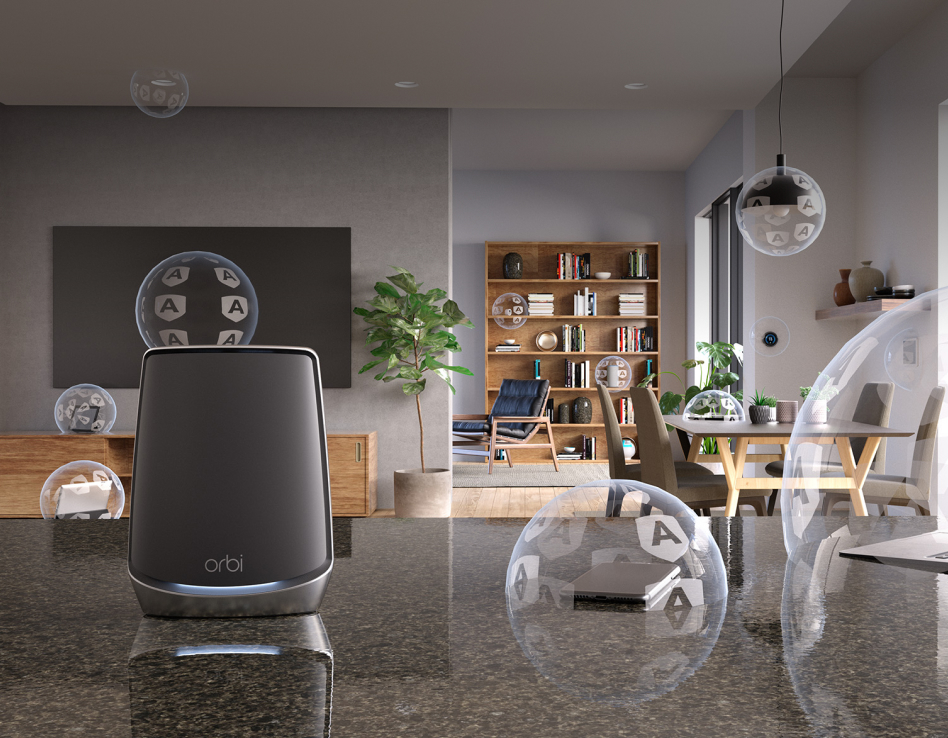IN THIS ARTICLE
Why Guest Networks Remain Essential
In an era where connectivity is ubiquitous and essential, the guest network feature of home routers often gets overlooked. After all, why bother setting up another network when we can provide the WiFi password to anyone who asks? The answer is simple: guest networks ensure security, privacy, and convenience for hosts and guests alike.
How Guest Networks Work

Guest networks create a separate wireless network within your existing WiFi infrastructure. When you set up a guest network, you create a virtual barrier between your primary network, which contains your personal devices and sensitive data, and the network guests can access.
Technically, this segregation is achieved using VLANs (Virtual Local Area Networks) or similar network segmentation techniques. VLANs allow you to create multiple isolated networks within a single physical network infrastructure, ensuring that devices on one network cannot communicate directly with devices on another network.
When guests connect to the guest network, they are assigned a unique IP address within the guest network’s address range. This ensures that their devices are isolated from devices on the primary network, preventing unauthorized access to shared resources and minimizing security risks. After all, you wouldn’t want guests on your home WiFi to go through the vacation pictures you store on that unprotected NAS on the network, would you?
Guest Networks Enhance Security and Privacy
The primary purpose of guest networks is to enhance security and privacy for both hosts and guests. By isolating guest traffic from your primary network, you reduce the risk of unauthorized access to sensitive data and devices. Even if a guest’s device is compromised, the impact is limited to the guest network, protecting your personal information and preserving network integrity.
Additionally, guest networks protect your privacy by preventing guests from accessing shared resources such as printers, file servers, or smart home devices. This ensures that guests can connect to the internet without gaining access to your personal files or interfering with your devices.
Guest Networks Help Manage Bandwidth and Control Access
 Guest networks also facilitate bandwidth management and access control. By directing guest traffic to a separate network, you can allocate bandwidth more effectively, ensuring that your own devices receive the necessary resources while still providing internet access to your guests. This prevents congestion and latency issues, particularly during peak usage times.
Guest networks also facilitate bandwidth management and access control. By directing guest traffic to a separate network, you can allocate bandwidth more effectively, ensuring that your own devices receive the necessary resources while still providing internet access to your guests. This prevents congestion and latency issues, particularly during peak usage times.
Moreover, guest networks simplify access control by providing a convenient way to grant temporary access to visitors. Instead of sharing your primary WiFi password, which you may need to change frequently for security reasons, you can provide guests with a separate network name and password specifically designed for temporary use. This eliminates the need to reconfigure network settings every time someone new visits, streamlining the process for both hosts and guests.
Guest Networks Can Safely Accommodate Your (Unsafe) IoT Devices
Guest networks also offer a practical solution for managing potentially unsafe IoT (Internet of Things) devices. Many IoT devices, such as smart thermostats, cameras, and home assistants, have a notorious reputation for security vulnerabilities. By connecting these devices to your guest network instead of your primary network, you create an additional layer of protection. Even if an IoT device is compromised, the threat is contained within the guest network, preventing unauthorized access to your personal devices and data. In short, a compromised IoT device will have limited use as a pivot to more important devices on your production network. This segregation helps mitigate the risks associated with insecure IoT devices while maintaining connectivity and functionality within your home or business environment.
Guest Networks Are No Substitute for Cybersecurity Solutions

While placing IoT devices on a guest network surely helps contain a possible incident, this does not replace a security solution. Modern smart homes require security solutions to identify and protect networks and devices from online threats. Developed in partnership with Bitdefender, a leading cybersecurity company, Netgear Armor offers advanced security features to safeguard against modern threats.




